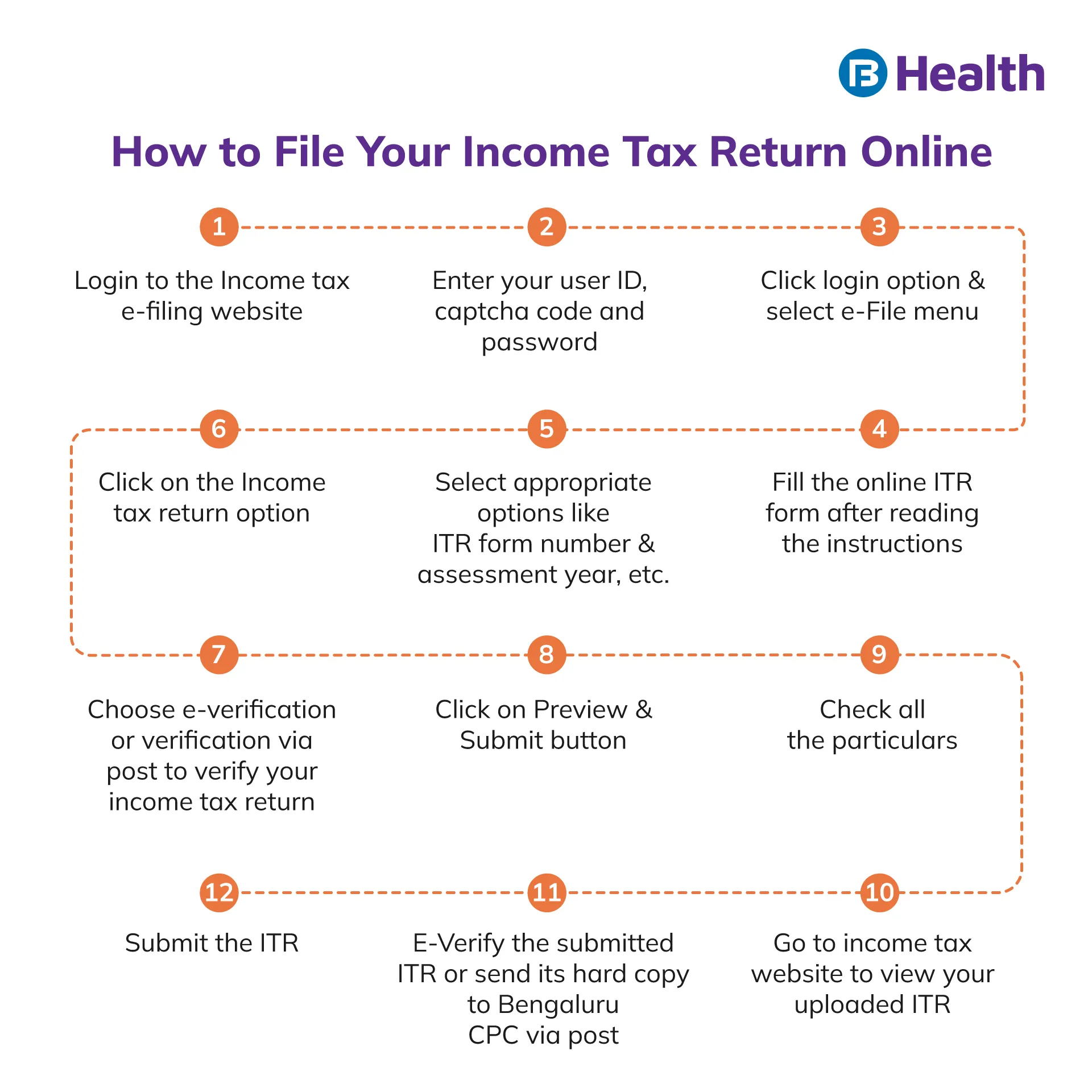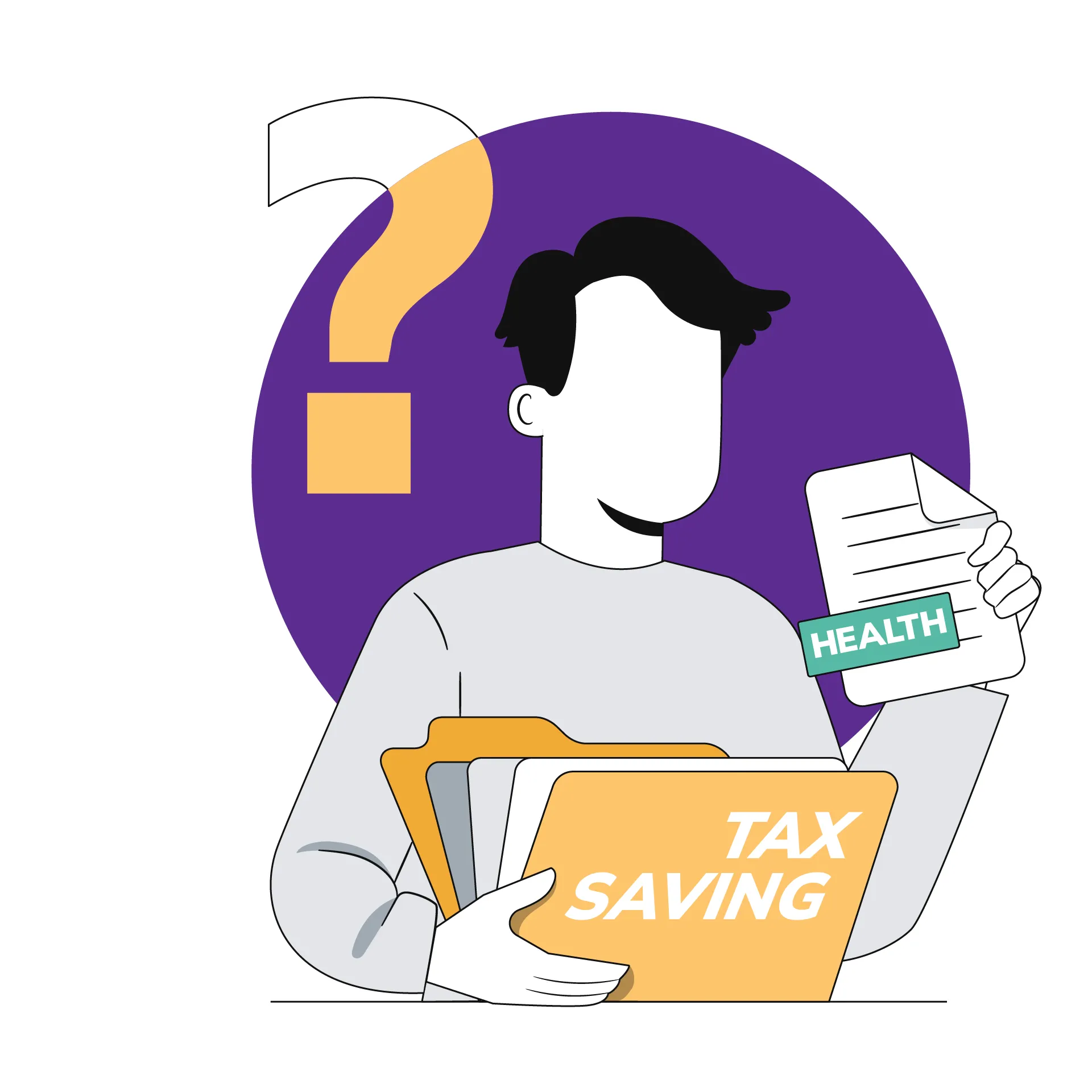Aarogya Care | 5 min read
Why Should Health Insurance be a Part of Your Tax Saving Plan?
Medically reviewed by
Table of Content
Key Takeaways
- Know how to save tax with your health insurance plan
- Learn the tax benefits of different sections of the IT Act 1961
- File tax wisely to get rebates against illnesses and disabilities
Are you planning your taxes for this financial year? If so, do not forget the exemptions on premiums you pay towards your health insurance policy. According to Section 80D of Income Tax Act, you are eligible for tax benefits if you have availed a health insurance plan either for yourself or for your family.
Often, you realize that you could have figured out different ways to save taxes only when you file your income tax returns. Having a health insurance policy can help you solve this. Not only does it shield your savings at the time of medical emergency, but a health plan also helps you save tax. Read on to understand why a health insurance policy should be a part of your tax savings plan.
Additional Read: 8 Important Reasons to Review Your Medical Insurance Every Year!
What Does the Indian Tax Structure Look Like?
In India, the tax structure is a three-tie system formed by state government, local municipal bodies and central government. There are two types of taxes in India known as:
- Direct tax
- Indirect tax
Any tax that is levied directly on corporate organizations and individuals is called direct tax. A few examples of this tax include:
- Gift tax
- Wealth tax
- Income tax
Tax that is indirectly levied on public through services and goods is called indirect tax. Some common examples of indirect tax include:
- Custom duty
- Value added tax
- Service tax
If you are thinking about how can I save tax, here are the different ways by which you may do so:
If you make an investment of Rs.1.5 lakh, you can reduce your taxable income as per section 80C. As per section 80CCD, you may also be allowed to claim a deduction of up to Rs.50,000 when you invest in national pension scheme (NPS).
According to section 80D, you are eligible for tax deduction on medical insurance premiums. You can claim up to a maximum deduction of Rs.1,00,000 if you, your family and parents are above the age of 60 years [1].
If you take a home loan, you can claim deductions of up to Rs.50,000 as per section 80EE.Which Insurance Is Best for Tax Exemption? Is Health Insurance Tax Saving?
Read on to get answers to common questions and plan your taxes smartly.
What Type of Insurance Is Tax Deductible?
Both life and non-life insurance options are tax deductible. Be it investing in a life insurance policy or a health insurance plan, both are ideal options that can provide you tax benefits and save your money.
How Do I Deduct Health Insurance Premiums from My Taxes?
The answer is quite simple. According to Section 80D, you are eligible for tax deductions on premium you pay towards health insurance policy for self, family and parents [2]. If your age is less than 60 years, you can claim up to Rs.25,000. However, in case of senior citizens, you are eligible for tax deductions of up to Rs.50,000. In a scenario wherein you and your parents are above 60 years of age, you can claim up to Rs.1,00,000.
Apart from tax benefits on premiums, you can avail tax deductions on preventive health check-up as well. You can claim up to Rs.5,000 according to section 80D. This is included in the limit above.
Are Health Insurance Premiums Excluded from Taxable Income?
By now, you must have realized that the premiums you pay are eligible for tax deductions.
There are other tax deduction sections under health insurance that you can use as well. According to section 80DDB, you can avail tax benefits towards medical treatment expenses of specific diseases and illnesses. You can claim up to Rs.1,00,000 if you are above 60 years of age. The following is the list of medical conditions that are eligible for tax deductions as per section 80DDB:
- Dementia
- Parkinson’s disease
- Chorea
- Aphasia
- Motor neuron disease
- Ataxia

There are also income tax laws that provide tax exemptions to you, if you or anyone else in your family is suffering from any disability. If you have any disability, you can claim tax benefits against section 80U. If anyone dependent on you has a disability, you can get tax rebate under section 80DD. Note that for availing these tax benefits, the minimum percentage of disability is 40%. It includes the following conditions:
- Hearing impairment
- Low vision
- Mental retardation
- Blindness
- Loco motor disability
In such cases, you can claim a deduction of up to Rs.75,000. If the disability is 80% or more, you can get a maximum deduction of Rs. 1,25,000.
Additional Read: How Section 80D of Income Tax Act: Health Insurance Tax BenefitsWhich Is Better – Pre-Tax or After-Tax Health Insurance?
The difference between after-tax and pre-tax health insurance payments is mainly based on how you have used your money to buy medical coverage. If it is a pretax payment, you can enjoy huge tax benefits. However, there are plenty of chances for deductions during filing of tax returns in after-tax payments. Based on your medical requirements, you can choose to opt for either pre-tax or after-tax payments. There are so many health insurances available in the market Ayushman health accounts is one of them provided by the government.
Now that you are aware of all these tax benefits, you should not miss including your policy premium when you plan your taxes. If you are planning to invest in an affordable plan, check out the Complete Health Solution plans on Bajaj Finserv Health. With features like preventive health check-ups, doctor consultation benefits and medical coverage up to Rs.10 lakh, these plans are customized to meet your needs.
References
- https://www.incometaxindia.gov.in/Pages/tools/deduction-under-section-80d.aspx
- https://cleartax.in/s/income-tax-savings
Disclaimer
Please note that this article is solely meant for informational purposes and Bajaj Finserv Health Limited (“BFHL”) does not shoulder any responsibility of the views/advice/information expressed/given by the writer/reviewer/originator. This article should not be considered as a substitute for any medical advice, diagnosis or treatment. Always consult with your trusted physician/qualified healthcare professional to evaluate your medical condition. The above article has been reviewed by a qualified doctor and BFHL is not responsible for any damages for any information or services provided by any third party.



